
by admin | Nov 27, 2023 | Uncategorized
The complexities surrounding abusive relationships are often difficult to comprehend from an outsider’s perspective. It can be challenging to understand why someone you care about would seemingly choose to stay in a situation that is clearly harmful. In this blog, we aim to shed light on some of the reasons why women may find it difficult to part ways from abusive relationships, delving into the intricate web of emotions, societal pressures, and personal circumstances that contribute to this challenging dynamic.
Fear of Harm if They Leave:
One of the most significant barriers to leaving an abusive relationship is the genuine fear of harm, whether physical or emotional. Abusers often use intimidation and threats to create an environment of fear, making it incredibly difficult for victims to break free.
Belief in Partner’s Change:
Women may still love their abusive partners and hold onto the hope that they will change. Manipulative promises of change and brief periods of kindness can create a cycle of false hope, making it challenging to sever ties.
Promise of Change:
Abusers may promise change, leading victims to believe that the abusive behavior is temporary. This promise, even if unfulfilled, can create a cycle of forgiveness and perpetuate the belief that change is just around the corner.
Strong Belief in Marriage:
Some individuals hold a strong belief in the sanctity of marriage, often interpreting it as a commitment “for better or worse.” This belief can create a sense of duty or obligation to endure hardships for the sake of the marital bond.
Self-Blame for the Abuse:
Victims may internalize the blame for the abusive behavior, convincing themselves that they somehow caused or deserve the mistreatment. Low self-esteem and self-blame can be powerful deterrents to leaving.
Staying for the Children:
Women may choose to endure abuse for the sake of their children, believing that maintaining a two-parent household is in their children’s best interest. Fear of negative consequences on the children can be a compelling reason to stay.
Lack of Self-Confidence:
Abusers often erode the self-confidence of their victims, making them feel incapable of surviving on their own. The lack of belief in one’s abilities can be a significant obstacle to seeking independence.
Fear of Isolation or Loneliness:
The prospect of being alone or isolated from friends and family can be daunting. Abusers often use isolation as a tactic to control their victims, making the outside world seem more intimidating than the abusive relationship.
Pressure from Family or Community:
Cultural and societal expectations, family pressure can play a pivotal role in influencing a woman’s decision to stay in an abusive relationship. The fear of judgment can be powerful motivators.
Lack of Means to Survive Alone:
Practical considerations, such as a lack of financial resources, job security, or transportation, can make the idea of leaving seem insurmountable. Economic dependence on the abuser is a common factor that keeps women in abusive relationships.
Understanding why women return to abusive relationships requires a nuanced examination of the emotional, psychological, and external factors at play. Empathy, support, and providing resources for women in these situations are crucial steps toward breaking the cycle of abuse. By addressing the root causes and offering avenues for assistance, we can contribute to creating a society where everyone feels empowered to break free from the shackles of abusive relationships.
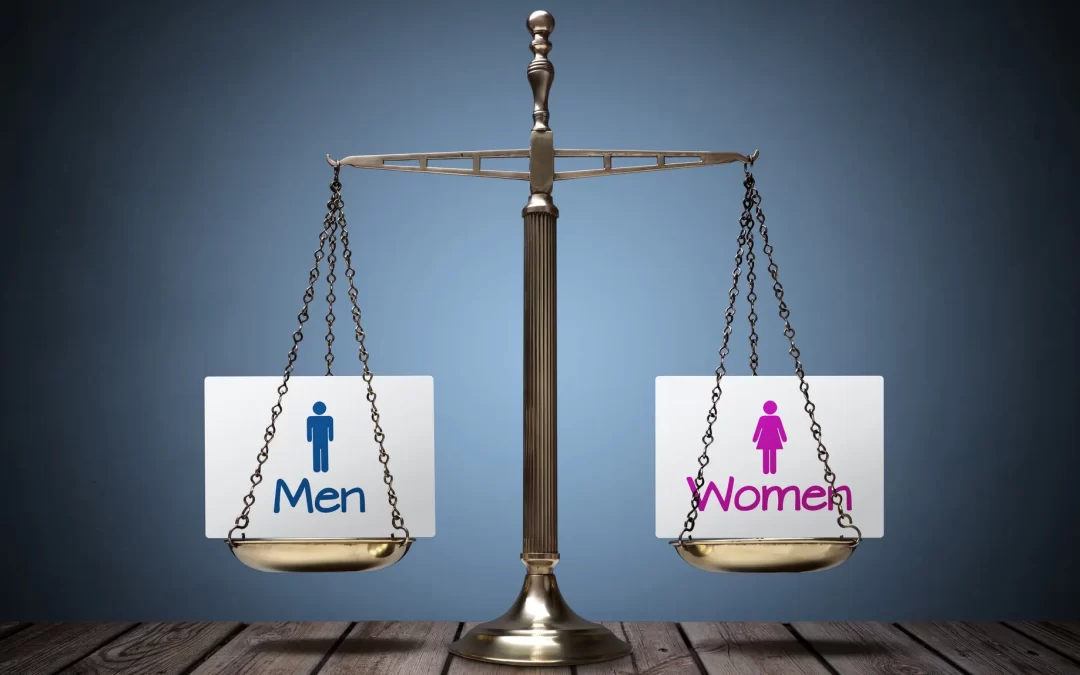
by admin | Nov 27, 2023 | Uncategorized
In the ongoing discourse surrounding gender dynamics, the clash between patriarchy and feminism stands as a pivotal point of discussion. This blog aims to delve deep into the historical roots, contemporary manifestations, and the ongoing debate between these two forces shaping societal norms.
Understanding Patriarchy:
Patriarchy, a system entrenched in historical structures, has long been the bedrock of societal organization. From economic hierarchies to cultural expectations, its influence is pervasive. This blog seeks to uncover the layers of patriarchy, examining its historical context and the ways it continues to impact various facets of our lives.
The Feminist Perspective:
In juxtaposition, feminism emerges as a response and resistance to patriarchal norms. With a focus on gender equality, feminism advocates for dismantling oppressive structures and amplifying the voices of marginalized individuals. We’ll explore the diverse waves of feminism, each bringing its own set of challenges and triumphs to the forefront.
Navigating the Contemporary Landscape:
As society evolves, so does the dynamic between patriarchy and feminism. From workplace inequalities to cultural stereotypes, we’ll examine the current state of affairs and the ongoing struggles faced by feminists advocating for change.
Breaking Down Misconceptions:
Addressing common misconceptions about both patriarchy and feminism is crucial for fostering informed discussions. This blog will debunk stereotypes and provide clarity on the goals and motivations behind each ideology.
Striving for Equality:
Ultimately, the aim is to foster a society that transcends the limitations of patriarchal norms and embraces the principles of feminism. By analyzing case studies, success stories, and ongoing challenges, we’ll paint a comprehensive picture of the path toward a more equitable future.
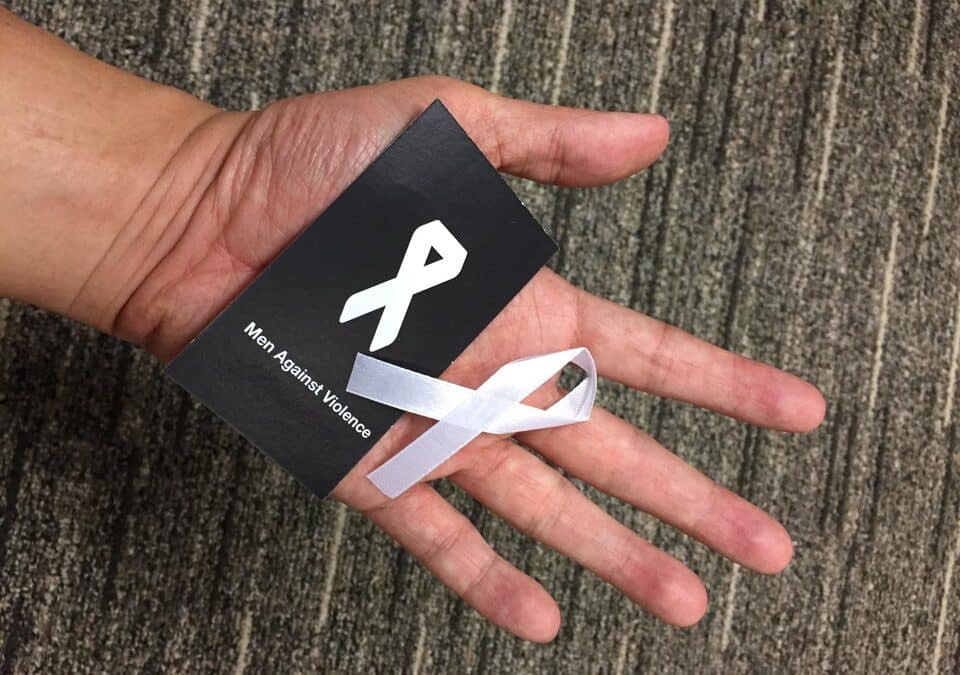
by admin | Nov 7, 2023 | Uncategorized
In the ongoing battle to combat violence against women in Pakistan, there is an increasingly pressing question: What is the ultimate solution? Numerous strategies have been proposed and implemented, including stronger legislative measures, improved service delivery and infrastructure, heightened awareness among women, and greater representation of women in leadership roles. While these efforts are undoubtedly essential, the prevalence of violence against women in the country continues to rise.
What makes this situation even more alarming is that, to a certain extent, such violence seems to be accepted by society, with insufficient condemnation from various tiers of our communities. After a decade of dedicated work as a women’s rights activist, I have come to the conclusion that the most enduring solution lies in the engagement of men in the pursuit of gender equality.
In a patriarchal society like Pakistan, the transformation of a perpetrator into a protector of women’s rights is a profoundly meaningful shift. Men, who traditionally hold decision-making power, including control over economic resources, education, healthcare, and women’s mobility within their families, can play a pivotal role in bringing about this transformation.
Contrary to the traditional feminist approach, engaging men in the eradication of violence against women is not only logical but also a popular phenomenon in such a society. The White Ribbon initiative in Pakistan is a pioneer in this field, offering a different approach to addressing the issue of violence against women. White Ribbon believes that men do not inherently possess a tendency for violence. Rather, it is social pressure, based on false standards, that provokes them to engage in violent behavior.
To guide men in understanding and addressing this societal pressure, White Ribbon has identified eight crucial ways to engage them in the eradication of violence:
- Let’s Talk: Communication is key. Dialogue with partners helps in understanding each other’s wishes, thoughts, and desires. Never assume consent; always discuss it openly.
- Act: Don’t be a passive bystander. Empower yourself to intervene and speak out against potentially harmful situations. There is always something you can do to make a difference.
- Choose Words Thoughtfully: Words matter. The language we use significantly impacts our society’s perception of women. Avoid derogatory terms that degrade and demean women.
- Talk with Men: Engage in open dialogues with other men about how domestic violence has affected their lives. Discuss the consequences of being seen as potential perpetrators and learn how to support male-identifying survivors.
- Lead by Example: Be an advocate for zero tolerance. Never excuse or remain silent about any form of violence, especially against women and girls. Be a role model, teaching respect and equality to your children.
- Organize: Join the cause in an organized manner. Affiliating with a movement keeps one motivated and committed to the cause of eradicating violence against women.
In Pakistan, the White Ribbon initiative is leading the way, focusing on engaging men in the fight against violence against women. By addressing the root causes and involving men in the solution, we can strive for a society where violence against women is unequivocally condemned, and women can live free from fear. Together, we can create a world where men are protectors of women’s rights, and gender equality is the norm.

by admin | Sep 11, 2023 | Uncategorized
Domestic violence is a devastating issue that not only affects adults but also has profound consequences on children’s development. At White Ribbon Pakistan, we are dedicated to shedding light on this often-overlooked aspect of domestic violence and its far-reaching effects.
Emotional Trauma: Witnessing violence at home can lead to emotional trauma, causing anxiety, depression, and even post-traumatic stress disorder (PTSD) in children.
Behavioral Issues: Children exposed to domestic violence are more likely to exhibit aggressive behavior, difficulty in school, and social withdrawal.
Cognitive Impairment: The constant stress and fear associated with domestic violence can impair cognitive development, affecting a child’s ability to learn and problem-solve.
Long-term Impact: Adverse childhood experiences, including exposure to violence, can have lasting effects on mental health and physical well-being throughout adulthood.
Break the Cycle: It’s crucial to break this cycle of violence to protect the current and future generations.
At White Ribbon Pakistan, we believe that raising awareness about the impact of domestic violence on children is a vital step towards eradicating this issue. By understanding the long-term consequences, we can motivate action to create safer homes and nurturing environments for all.
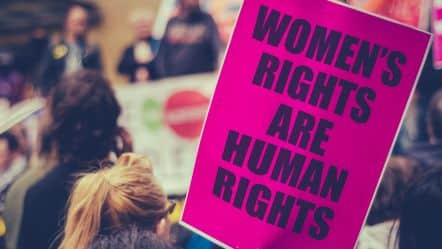
by admin | Aug 28, 2023 | Uncategorized
In a world striving for gender equality, it’s disheartening to see the persistent cycle of discrimination that many women face throughout their lives. This cycle, often subtle yet deeply ingrained, impacts women from infancy to old age. Let’s delve into the stages of this cycle, shedding light on the challenges women encounter at each juncture.
Infancy: From birth, gender stereotypes can influence the care, attention, and expectations placed on girls.
Childhood: Unequal access to education and opportunities limits girls’ potential and reinforces gender norms.
Adolescence: Puberty brings additional challenges, including body image issues and societal pressures.
Early Adulthood: Entering the workforce, women may face wage gaps, discrimination, and glass ceilings.
Motherhood: Balancing career and family often means sacrificing career advancements for women.
Middle Age: Ageism compounds gender discrimination, affecting job prospects and self-esteem.
Senior Years: Elderly women often experience financial insecurity and healthcare disparities.
Breaking this cycle requires collective effort. Organizations like White Ribbon Pakistan work tirelessly to empower women and challenge societal norms. Let’s support their mission for a more equitable future.
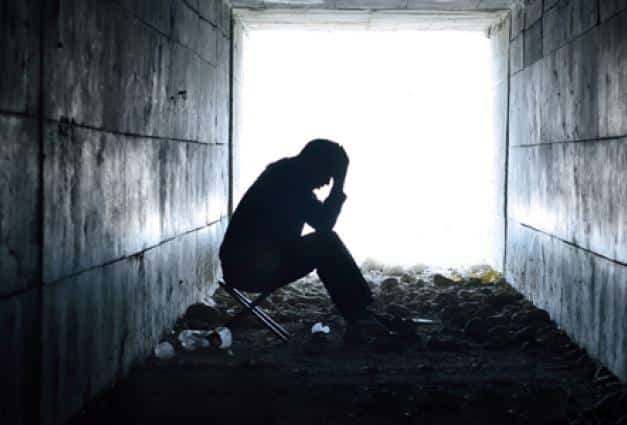
by admin | Aug 15, 2023 | Uncategorized
In the journey toward gender equality, it’s essential to address the complex relationship between men, masculinity, and patriarchy. At White Ribbon Pakistan, we believe that understanding this dynamic is crucial for dismantling harmful stereotypes and creating a more equitable society.
Reexamining Traditional Roles: Patriarchy often enforces rigid gender roles, limiting both men and women. We encourage men to challenge these roles and embrace a more inclusive definition of masculinity.
Encouraging Emotional Expression: Toxic masculinity often discourages men from expressing their emotions. We promote emotional openness as a healthy aspect of masculinity.
Promoting Consent: Consent is a cornerstone of respectful relationships. We advocate for clear and enthusiastic consent, emphasizing that it’s a sign of strength, not weakness.
Supporting Gender Equality: Men can be powerful allies in the fight for gender equality. We encourage men to use their privilege to uplift women’s voices and rights.
Breaking the Silence: Men play a vital role in speaking out against gender-based violence and discrimination. Silence perpetuates the status quo; speaking up is a catalyst for change.
White Ribbon Pakistan is committed to fostering a society where men and women can coexist as equals. Join us in redefining masculinity and dismantling patriarchal norms to create a more just and inclusive world.
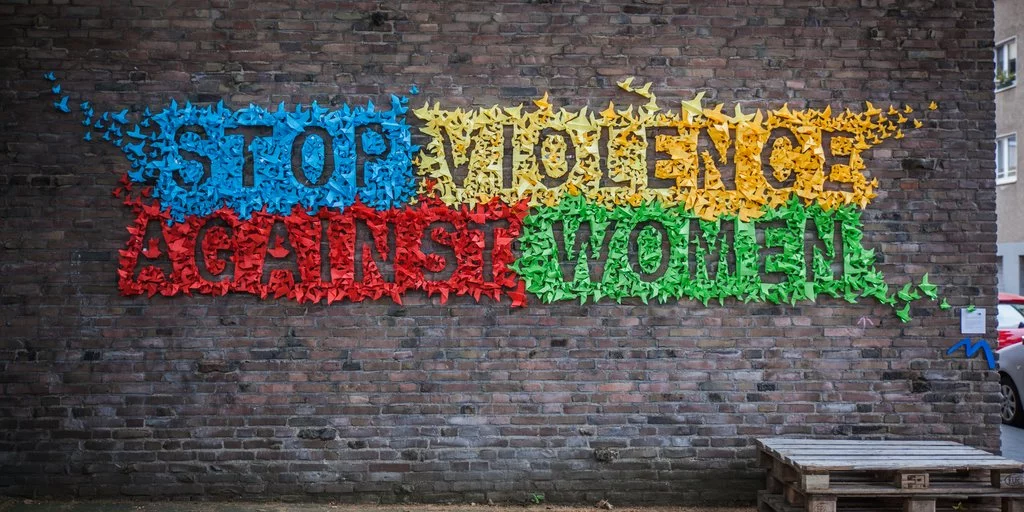
by admin | Aug 2, 2023 | Uncategorized
Violence against women often starts subtly, making it crucial to recognize the early warning signs. At White Ribbon Pakistan, we are dedicated to raising awareness about these indicators to prevent abuse and support victims. Here are some key early signs and symptoms:
Isolation: Abusers may isolate victims from friends and family, making them feel alone and dependent.
Controlling Behavior: Excessive control over finances, daily activities, or communication is a red flag.
Verbal Abuse: Frequent criticism, insults, and humiliation can erode self-esteem.
Threats and Intimidation: Threats of harm, breaking possessions, or displays of violence create a climate of fear.
Monitoring: Abusers may constantly monitor a victim’s whereabouts or communications.
Unpredictable Mood Swings: Rapid shifts from kindness to anger can be unsettling and alarming.
Financial Abuse: Controlling or limiting access to money can leave victims financially dependent.
Gaslighting: Manipulating victims into doubting their own perceptions and reality.
Physical Violence: Acts of violence, such as hitting, slapping, or pushing, are clear signs of abuse.
It’s essential to recognize these signs and take action to support victims and hold abusers accountable. White Ribbon Pakistan stands against violence and offers resources for victims and their families. Together, we can break the cycle.
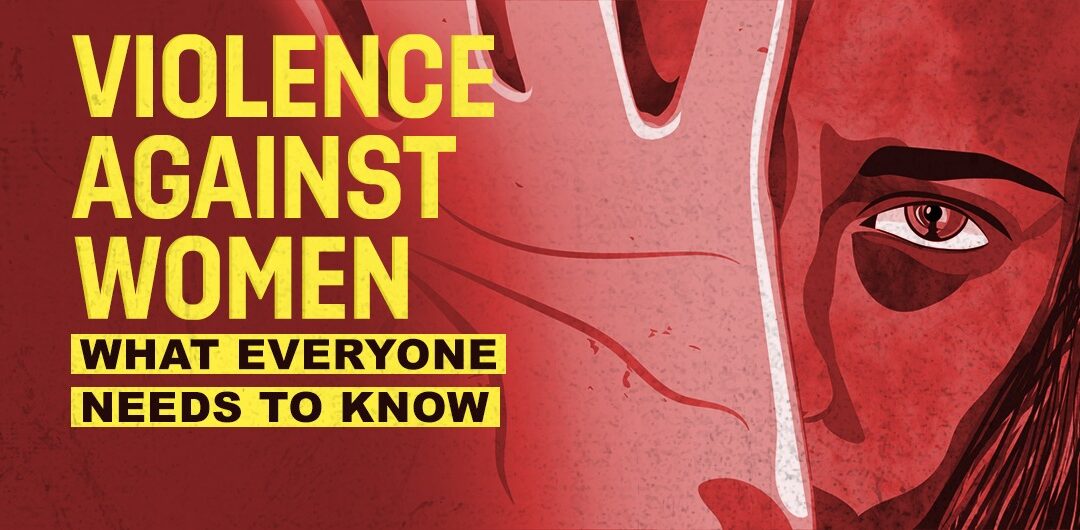
by admin | Jul 20, 2023 | Uncategorized
Abuse and violence against women constitute a deeply troubling cycle that must be addressed urgently. This vicious cycle often traps victims, leaving physical, emotional, and psychological scars. At White Ribbon Pakistan, we believe it’s vital to understand this cycle to break it. Here are the stages:
Tension-Building Phase: In this initial stage, tension gradually escalates, marked by anger, blame, and emotional abuse.
Explosion Phase: This is when the abuse reaches its peak, leading to physical or emotional violence.
Honeymoon Phase: After the explosion, the abuser may apologize and show remorse, creating a temporary sense of calm.
Reconciliation Phase: The victim often forgives the abuser, hoping for lasting change, but sadly, this rarely occurs.
Breaking this cycle necessitates education, awareness, and intervention. White Ribbon Pakistan is committed to eradicating violence against women. Join us in this crucial endeavor.

by admin | May 2, 2023 | Uncategorized
In recent years, the world has witnessed an alarming increase in sexual violence against women. This harrowing trend underscores the urgent need for collective action to combat this deeply troubling issue. At White Ribbon Pakistan, we are committed to raising awareness and advocating for change.
Disturbing Statistics: The rise in sexual violence cases is a cause for grave concern. The numbers paint a stark picture of the widespread nature of this problem.
Impact on Victims: Sexual violence inflicts severe physical and emotional trauma on survivors, often leaving lifelong scars.
Challenging the Culture: Addressing sexual violence requires challenging the prevailing culture of silence and victim-blaming.
Education and Awareness: Comprehensive awareness campaigns are key tools in preventing sexual violence.
Legal Reforms: Advocating for stricter laws and better enforcement is crucial for justice and deterrence.
Support Systems: We must establish robust support systems for survivors, including counseling, legal aid, and safe shelters.
Gender Equality: Achieving gender equality is a fundamental step towards eradicating sexual violence against women.
It’s time for society to stand up, speak out, and take concrete actions to protect women from sexual violence. Join White Ribbon Pakistan in raising awareness, advocating for change, and supporting survivors. Together, we can create a world where women can live free from the fear of sexual violence.
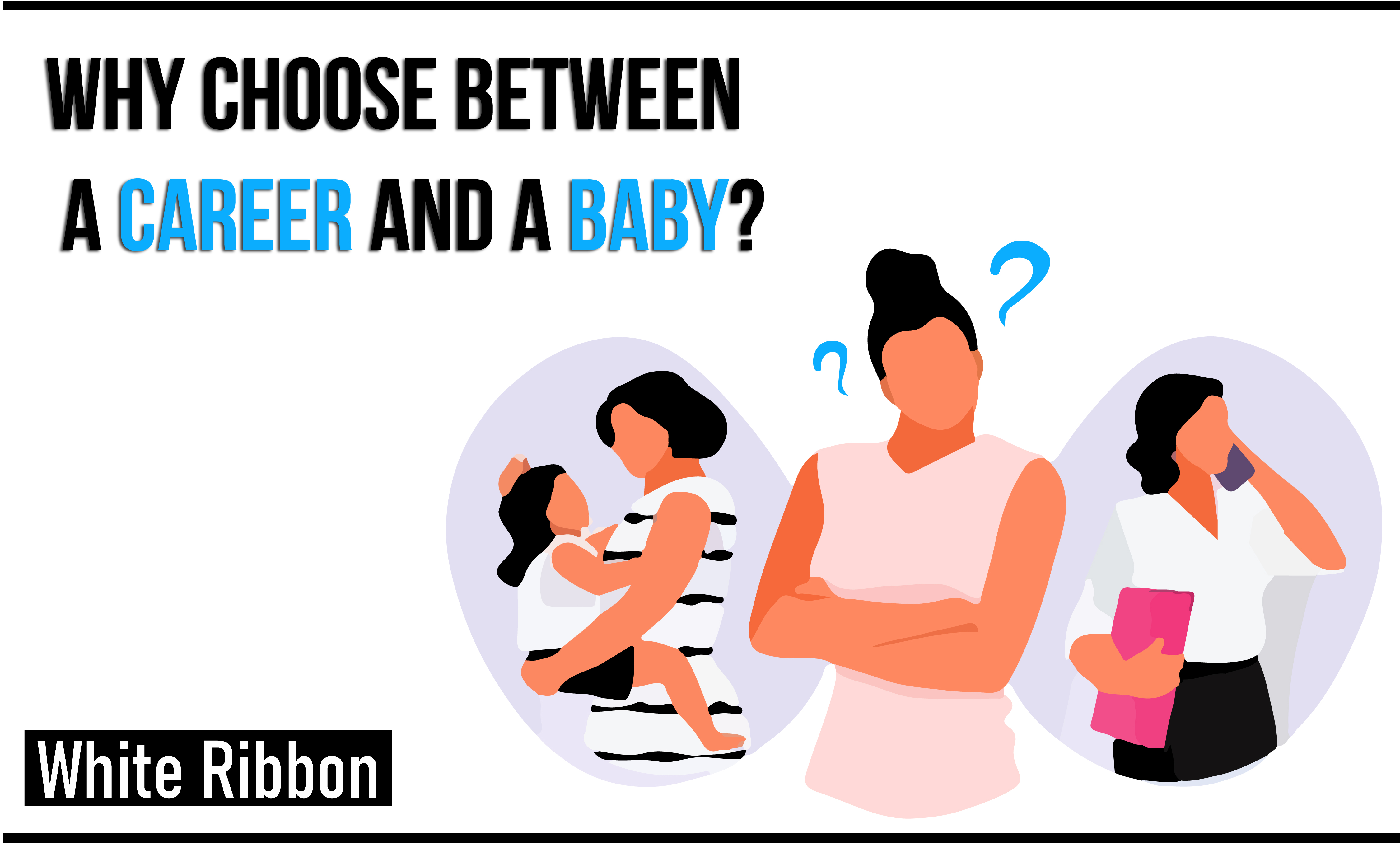
by admin | Apr 10, 2023 | Uncategorized
For centuries, women have been forced to choose between their careers and motherhood. However, this dilemma is not just limited to the past; even today, many women face this issue. To be forced to give up one’s dreams for the sake of another can not be regarded as anything but unfair and unacceptable. Women should not have to choose between career and motherhood. Instead, there are alternatives that women can take to maintain a balance between their professional lives and motherhood.
One of the alternatives is to negotiate flexible working hours. Many companies are now offering flexible working arrangements, such as part-time work or working from home. Women can take advantage of these options to balance their professional and personal lives. This will allow them to take care of their children while continuing to pursue their careers. Another option is to delegate some of the responsibilities to others. For instance, working mothers can hire a nanny or a babysitter to take care of their children while they are at work. They can also ask their family members or friends to help them with childcare duties. This will give them some time to focus on their work while also ensuring that their children are well taken care of.
Moreover, women can choose to work in industries or companies that prioritize work-life balance. There are many companies that offer generous maternity leave policies, on-site childcare facilities, and flexible working arrangements. Working for such companies will ensure that women do not have to compromise their careers or motherhood. Additionally, women can plan their careers around motherhood. For instance, they can delay their career advancement until their children are old enough to be more independent. They can also choose to work part-time while their children are young and then transition to full-time work once their children are in school.
Furthermore, women must prioritize self-care. Taking care of oneself is crucial for maintaining a balance between work and motherhood. Women can take time off from work to relax, exercise, or pursue hobbies. This will help them to stay healthy, focused, and productive in both their personal and professional lives. In conclusion, it’s time to break the stereotype that women cannot have it all. With the right support and resources, women can have successful careers and be great mothers at the same time.










